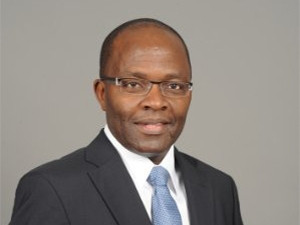
Despite the drop in global rankings in terms of ICT development, SA is not doing badly.
So says Cosmas Zavazava, chief of department, projects and knowledge management at the International Telecommunication Union (ITU), speaking at a media briefing in Gaborone, Botswana.
Today, the ITU launched its latest Measuring the Information Society (MIS) report, which features the 2016 ICT development index (IDI) and shows SA's ranking moved from 86 to 88between 2015 and 2016.
The IDI is a composite index that combines 11 indicators into one benchmark measure, which can be used to monitor and compare ICT developments between 175 countries across the world.
According to Zavazava, the IDI is not a naming and shaming game. Countries should not necessarily focus on which country is number one or number two; they should look to refine public policy and attract investment within the sector.
He explained: "You have to take the country within the context. If you look at the regional level, SA is number three and there are only two other countries at the top and those are Seychelles and Mauritius.
"A shift of one point or gain of one point in ranking does not spell disaster or too much celebration."
Susan Teltscher, head of human capacity building division and head of ICT data and statistics division at the ITU, noted that within the Africa region, SA is doing very well.
Zavazava added there is definitely room for improvement for the country. "There are countries that can jump 10 points in rankings, so next year, who knows, SA can jump up 20 places."
Top performers
Meanwhile, the Republic of Korea topped the 2016 IDI rankings for the second consecutive year.
According to the report, the other top countries include two economies in the Asia-Pacific region, and seven European countries.
Three island countries in the Caribbean, namely St Kitts and Nevis, Dominica and Grenada, featured among the most dynamic countries, with strong improvements in their IDI value and rank.
Commenting on the report, ITU secretary-general Houlin Zhao said: "To bring more people online, it is important to focus on reducing overall socio-economic inequalities.
"Education and income levels are strong determinants of whether or not people use the Internet. ICTs will be essential in meeting each and every one of the 17 sustainable development goals (SDGs), and this report plays an important role in the SDG process."
According to Brahima Sanou, director of the ITU's telecommunication development bureau, this year's results show nearly all of the 175 countries improved their IDI values between 2015 and 2016.
"During the same period, stronger improvements have been made on ICT use than access, mainly as a result of strong growth in mobile broadband uptake globally. This has allowed an increasing number of people, in particular from the developing world, to join the information society and benefit from the many services and applications provided through the Internet," he said.
The ITU unveiled the MIS report and IDI rankings in Gaborone, Botswana, where it is hosting the 2016 World Telecommunication/ICT Indicators Symposium until 23 November.
Share